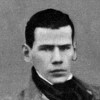“ Contrariwise, whatsoever things hinder man's perfecting of his reason, and capability to enjoy the rational life, are alone called evil. ”
Baruch Spinoza, Ethics (1677). copy citation
| Author | Baruch Spinoza |
|---|---|
| Source | Ethics |
| Topic | evil reason |
| Date | 1677 |
| Language | English |
| Reference | |
| Note | Translated by R. H. M. Elwes |
| Weblink | http://www.gutenberg.org/files/3800/3800-h/3800-h.htm |
Context
“Wherefore of a man, who is led by reason, the ultimate aim or highest desire, whereby he seeks to govern all his fellows, is that whereby he is brought to the adequate conception of himself and of all things within the scope of his intelligence.
V. Therefore, without intelligence there is not rational life: and things are only good, in so far as they aid man in his enjoyment of the intellectual life, which is defined by intelligence. Contrariwise, whatsoever things hinder man's perfecting of his reason, and capability to enjoy the rational life, are alone called evil.
VI. As all things whereof man is the efficient cause are necessarily good, no evil can befall man except through external causes; namely, by virtue of man being a part of universal nature, whose laws human nature is compelled to obey, and to conform to in almost infinite ways.”
source


